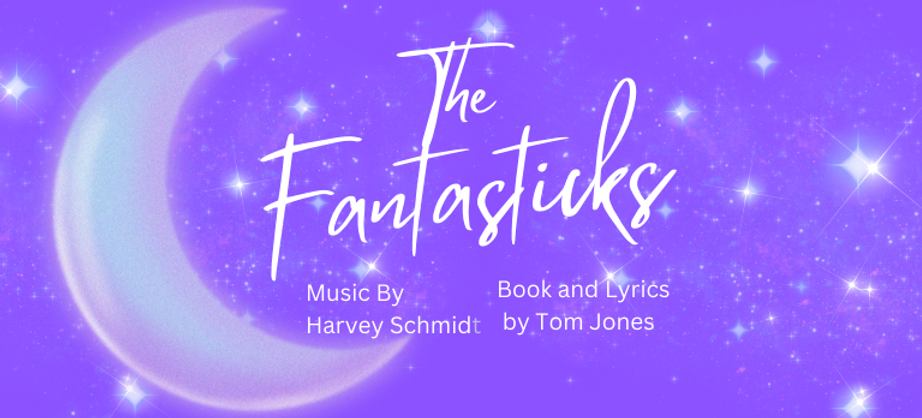WEST JORDAN — The Fantasticks is a lesser known, small-cast musical from 1960 headlined by a couple songs that have been stuck in the back of the American consciousness in the decades since. “Soon It’s Gonna Rain” and “Try to Remember the Kind of September” are tunes many folks can probably hum the melody of, but likely have no idea when they heard it.
In staging and plot, this is a simple, fourth-wall breaking comedy. The play’s staging and structure draw heavily on the tropes of Commedia Dell’arte and physical clowning. The plot concerns young lovers Matt and Louisa, next door neighbors, whose fathers pretend a feud in order to foster a rebellious love between their children. The plot thickens when the fathers hire a troupe of traveling actors, lead by the braggadocious narrator, El Gallo, to stage “an abduction.” The parents hope that the youngsters will seal their love through the sense of danger and heroism. The second act concerns the lovers’ discovery that they still have some growing up to do.
Having seen and adored the show decades ago, I was excited to revisit the show in a new production at the still-new-on-the-scene Sanctuary Theatre Company in West Jordan. According to their website, the company was founded by producer Connie Beaty “to provide a safe haven for anyone and everyone to be able to be their authentic selves.” The company uses a “blind” casting method to promote a safe and welcoming environment. This is a novel concept, but leaves me wondering how the production team can properly assess an actor’s competency without seeing how they express emotion with their face and body.
While I commend the equitable intention behind this casting style, I am left wondering how well this principle serves the company, which seemed like a tight-knit social community. I was also surprised by the blind casting because roles seemed to be filled by actors of the expected age and body type. I would have expected they might have ended up with a more surprising result—like an unsettling age gap between the two lovers or a comic difference between the two fathers. Instead, other than some gender bending, the cast fit their roles visually as would be expected in a regular audition process.
Sanctuary’s mission and programming focus on providing an exploratory, growth-based environment, which helps reconcile the general skill level of the cast I saw. With one exception, the performances lacked polish and nuance. I noticed several actors’ eyes wandering among the audience as if looking for approval of choices. Lines were delivered as if being read off the page, and the basic dance choreography was executed without much conviction, and sometimes with confusion.
The roles of the lovers are double cast. I saw the “Metaphor Cast” featuring Ariel Tegan as Luisa, and Hunter Williams as Matt. Williams demonstrated the strongest vocal performance of the cast, but he was at odds with an often-flat Tegan. Director Robert Johnston showed off his stage skills as the old clown, Henry. A brief scene of Henry misquoting Shakespeare and hamming up a death scene with his sidekick Mortimeris was the highlight of the production. And yet, in the director’s staging choices, many moments left me wondering if scenes had to be reworked or retrofitted someway to accommodate the beginner skill set of the other performers.
A few other factors that unfortunately worked against this performance. Costumes and makeup (also by Johnston) seemed slapdash and unfinished; some ill-fitting costume even seemed to cause the cast members physical discomfort. The theater space itself was also distracting. As an audience member, it was hard to ignore the trash underfoot, the very uncomfortable chair I sat on, and most of all the oppressive heat of the space which was clearly working against the actors. El Gallo, played by Carl Smith, could make good use of a bandana being added to his costume to help mitigate the sweat he contended with during dance and fight sequences. I hope cooler days ahead will lead to crisper performances across the board.
Sanctuary’s mission to provide a supportive, collaborative space for shared community and artistic growth is a wonderful aim—and one that more organizations should strive for. However, while the company’s goals and blind casting are admirable, this production of The Fantasticks unfortunately did not live up to their stated mission to “find true talent and beauty” through theatre. Hopefully, the company can put together better productions, perhaps in genres that better fit their capabilities, in the future.
[box]The Fantasticks plays at Sanctuary Theatre in West Jordan August 9-24 at 7PM. Tickets are $15 and can be purchased at sanctuarytheatercompany.com.[/box]
